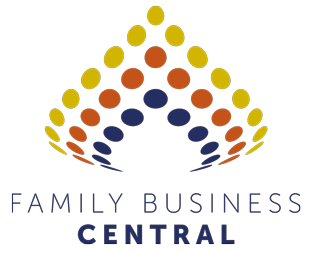
Building and Growing: The Evolution of Your Family Business
Over the years we have had the honour of working with a range of family businesses, helping them set up solid business governance and processes. As we discuss in our 201 Business and Governance Webinar, this is an important area for all family businesses to be working on as they look to grow the business.
This is all part of what we call the Evolution of Family Business — the sense that as a family business grows and develops, it evolves and changes. Over time these changes can be quite large, including obvious things like:
- The amount of money coming in;
- The number of staff working there;
- The complexity of the business environment;
- How things are done.
Sometimes it seems that family businesses have been so busy that, after 10 or 20 years they suddenly look up and realise their business is very different, very successful and not what it used to be.
We have a couple of family business clients where the founders almost seem in shock when they look at what they and their family have achieved. No longer are they owners of a small struggling business. They oversee vibrant, successful entities that have responsibility for dozens of employees, their families and has a complexity that boggles their mind.
The challenge here is to professionalise the business so that it can continue to grow, tap into the full talents and skills of the staff and fulfil its potential. At the same time, this needs to be balanced with not burdening it with unnecessary processes, rules, procedures and meetings that get in the way of being a ‘light-on-its-feet’ business.
A great example of a business that has managed this well is an Australian based family business we know that has over 1000 employees spread across the country. The father and son run the business and they compete against publicly listed companies. Their ability to make decisions, move fast and totally out-manoeuvre the competition is legendary. Their systems and processes are light, effective and their staff motivated and keen.
Business continuity, growth and success: How to scale up your family business
Typically, a family business will start with a family member having a great idea, another family member joins in and, after much hard work, the business starts to take off. More staff and family members are hired and so, by the time there are 10-15 people working, the business is really starting to take off. Everyone knows everyone, people work hard, there is a real attitude of ‘just do it’. This is great and immensely satisfying.
The next challenge is when the business grows to the next level — say 20-30 people. At this point, you can’t really ‘know’ everyone as well and the need for reporting lines and business structures becomes apparent. By the time you’ve got 50 people on board there is a ‘Leadership Team’ as well as supervisors and managers. Or, at least, there should be. And here is the rub — a business with 5-10 people is a totally different beast to one that employs 50. Managing 50 people requires systems, position descriptions that link to KPIs and clear expectations around performance and behaviour. At 10 people, you often can get away without this — at 50 no such luck. (As an aside, managing the number of people is only one aspect of growing a business, things like cashflow and capacity, among others, are all equally important and will be the topic of another blog.)
Ability to manage staff is key to family business growth
This brings us to the other challenge for family businesses. Family business owners are inevitably great businesspeople, fantastic entrepreneurs but, their skills (and patience) as managers are often lacking. The reality is that as your business grows, your skills as a manager and leader become more and more important. Your business becomes dependent on the effectiveness of your staff and your ability to manage and lead them. This is a large part of the evolution of family business. As I used to say to lawyers in large legal firms, “your success is now dependent on how good a leader and manager you are not, how good your legal expertise is”.
Avoiding the “The Tyranny of Niceness” in your family business
As well as the ability to manage and lead staff, the ability to manage poor performance is extremely important. Many family businesses struggle with this. And as the business gets bigger this becomes important, how do you have the difficult and awkward conversation about someone’s poor performance? There has been a real tradition of ‘just do it’ and ‘work hard’. Often employees who join later either do not appreciate this philosophy or are not aware of it.
Many family businesses suffer from what I call “The Tyranny of Niceness”. They will often tolerate poor performance or behaviour in staff and let people get away with things that they really shouldn’t. At first, it’s often a small thing but then starts to snowball into bigger areas. If it’s let go on for too long, it starts to become a habit. The old saying “The behaviour you walk past is the behaviour you accept” is completely true. And as your staff numbers grow, this can become a huge issue.
The secret is to address this behaviour early, while it is still small and easy to deal with — if we keep ‘walking past’ it builds into something far more difficult, more entrenched, and often with a fair bit of emotion involved — all making it harder to deal with.
We’ve written previously about how to manage a family member’s poor performance, however dealing with staff’s performance is also critically important.
So as the business evolves, the attitude and at times the culture and assumptions of the family need to evolve with it — and this is where it gets a bit tricky.
Times are a-changing — so is your family business
One example which we have come across many times is the assumption that everyone in the family is equal. Which means when you work in the family business you all get paid the same. This is fine in the early days but as the business grows and evolves as described above, that assumption needs to be challenged. The question must be asked, does the family member who works on a production line in the family manufacturing business get the same pay as the family member who is the CFO, for example?
Other examples of assumptions or culture that get challenged include:
- The family business should provide a job for all family members;
- Family should get jobs because they are family not necessarily their skills;
- Because [some family disaster/conflict/injustice] happened in the past—we must always be fearful of it happening again and not change anything;
- Of course the oldest boy should get the top job;
- A family member should always be running the business;
- Never praise or recognise the efforts and accomplishments of family — they should just get on with it!
Some of these assumptions may still be valid and some won’t — the key thing is for the family to discuss them frankly and honestly and see whether they are still valid.
Other things change as well, we know that to an often surprisingly large way, family members identify emotionally with the business and often have wonderfully warm memories of their early interactions with the business.
For example, I remember going into our family office and being fed lollies by my father’s secretary (when he wasn’t looking) when I was 5 or 6 — today, how many people have secretaries? In the early days of a family business the kids may have all helped out in the business, gone in during school holidays and been an active part of the business. Twenty-five years later they often want their kids to have the same experience, however it just might not be able to happen. The business could be entirely different, the OHS laws may prevent it, and, in one case, when the previous generation used to go in and count the coins from the day’s taking, it’s all electronic now, there are no coins…
Growing your business is hard work and at times challenging, but the rewards are incredible. For a family, it is important to look at how the business is evolving, accepting that some change is inevitable and while some things may no longer be possible, other opportunities reveal themselves. The critical thing is for the family to not be stuck in the past, assuming that all assumptions and ways of doing things are the ONLY way of doing things. This takes honest transparent conversations within the family, preferably at the Family Council meeting [you do have a Family Council don’t you??]
Contact us at philip@familybusinesscentral.com and see how we can support your family and your business to evolve and grow in a way that you, your current and future generations can all be proud of and benefit from.

